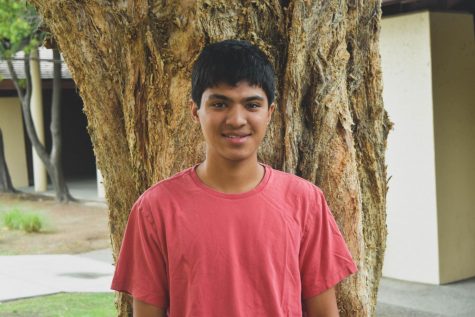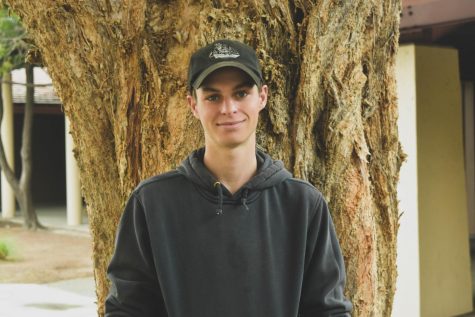
The Tuesday confirmation of Betsy DeVos as Secretary of Education unsettled the Palo Alto Unified School District superintendent, Paly teachers and the wider PAUSD community, a concern that initially sparked after her remarks during the Senate hearing.
DeVos, a billionaire who hails from the Michigan elite, is widely known for her advocacy for school choice, a policy that offers financial incentive for students to attend K-12 schools outside of the public school system.
Supporters of DeVos argue that her anti-regulation philosophy will provide students and their families with more independence and therefore better options. On the other hand, her critics assert that her exclusive work with non-public schools and narrow focus on charter and religious schools disqualify her from the position.
PAUSD Supt. Max McGee says he is unsettled by the negative outlook on public education DeVos has expressed throughout the confirmation process.
“Ms. DeVos may be very intelligent and she’s certainly very wealthy, but I think she has a lot to learn about public education and leadership,” McGee said.
DeVos has remained consistent on one of her signature policies, privatizing public schools, which has drawn criticism from public school officials nationwide. According to McGee, transferring public education funds into the private sector would prove to be a dangerous move.
“Assuming that privatization is going to make a difference for our most needy and, in many cases, our most deserving students, is misinformed,” McGee said.
One of the most memorable moments of DeVos’ Senate hearing came when Sen. Tim Kaine, a Democrat from Virginia, asked DeVos if she believed all schools that receive taxpayer funding – public, public charter and private – should be equally accountable, and DeVos eventually replied “well, no.” In stark contrast, McGee said that PAUSD will strive to be a national model for accountability, and hopes others will follow suit.
“I think in her heart of hearts, Ms. DeVos understands the importance of accountability,” McGee said. “Certainly, business owners are accountable to their shareholders if they’re going to stay in business, so I hope some of the things we do here in Palo Alto and other lighthouse districts across the country in terms of accountability could inform federal policy.”
According to Paly social science teacher Caitlin Evans, DeVos’ ideas would undermine the current system. Diverting attention away from the struggles of public schools by providing the option of non-public schools would only worsen the current state of public schools, according to Evans.
“There will be a huge swath of the population that won’t know they have the right to choose, or they don’t have a school they can physically get to, so you end up with public schools that are underfunded,” Evans said. “That’s a concern that public school teachers have, that she [DeVos] is taking the emphasis away from public schools, and giving a buffet of options, and what that ultimately means is that those [public] schools get worse, because they lose funding, teachers and students.”
Evans is not worried about the future of PAUSD, but she is worried about neighboring school districts that do not have the large amounts of funding that PAUSD has.
“I’m not too concerned about that issue in Palo Alto, but I know that the Oakland School District is really concerned about it,” Evans said, referencing the school choice policy. “They have a big population. They have a lot of charter schools and private schools and they are all competing for students. It puts the public schools in a really tight spot.”
For Duveneck Elementary School teacher Barbara Susco, DeVos severely lacks the experience to control education at the federal level.
“She’s not qualified to be the Education Secretary,” Susco said. “She has never handled a large budget and she has no experience with public schools.”
Susco, along with other community members, attended a protest Monday afternoon on the corner of El Camino Real and Embarcadero Rd. The group’s goal was to inspire others to contact Republican senators and urge them to reconsider then-nominee DeVos, according to Susco.
Former Duveneck teacher Erika Papakipos joined Susco in participating in the demonstration. According to Papakipos, DeVos is dangerous and a threat to American education.
“I am concerned that having somebody that knows nothing about education and who has sort of an antipathy to public education is going to dismantle public education and further increase income inequality and opportunity inequality in this country,” Papakipos said. “I’m afraid that she [DeVos] would just move us in the wrong direction.”
Papakipos said she believes that the values and opinons of people in Palo Alto are threatened by DeVos’s new role in the government, and that those who don’t support her should make themselves heard.
Paly senior Ibby Day has enjoyed her public school education and worries that school choice may negatively impact the diversity of public schools.
“I think that attending public schools has opened me up to a more diverse range of people,” Day said. “I fear that DeVos’ school choice plan might take away [some] types of people that attend public schools, which will cause the student population to be less diverse.”
McGee expressed an interest in working with DeVos by providing an example of a successful public education model.
“I would love to have her join us in Palo Alto and see what a high quality education is like,” McGee said. “Maybe [we could] find ways [to] help inform policies that would have a positive impact on school districts across the country.”



